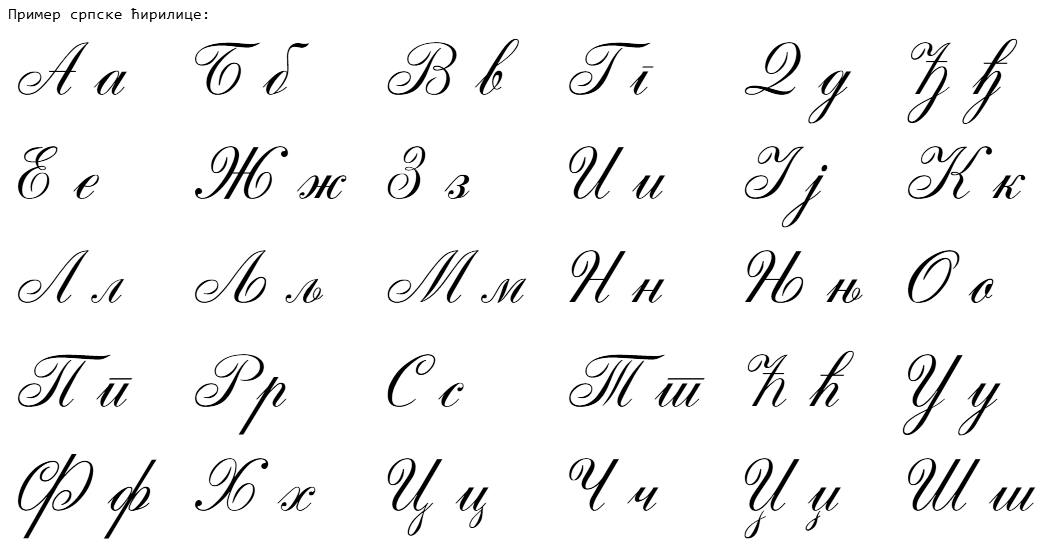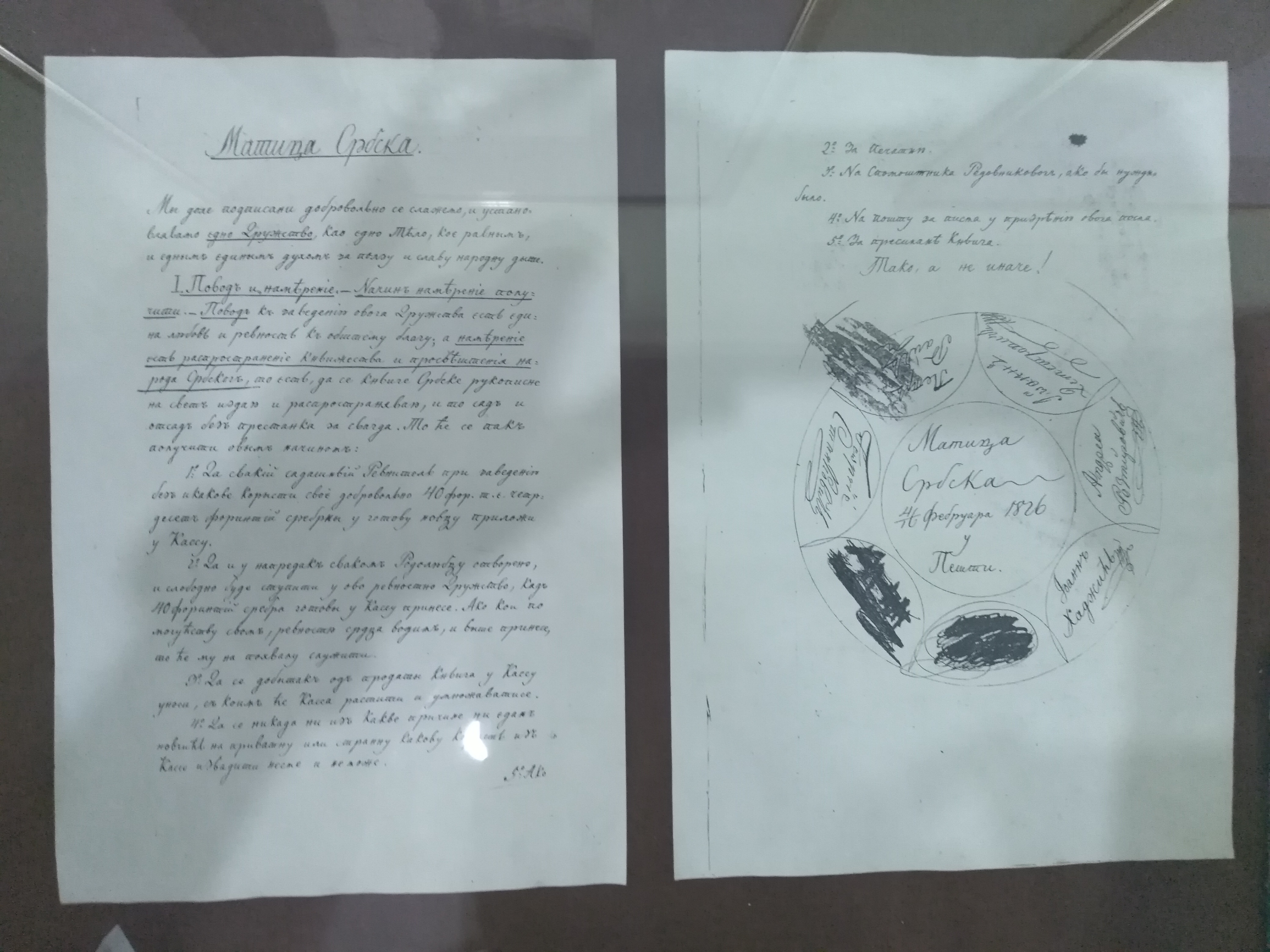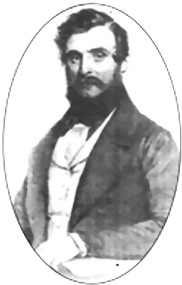|
Aleksandar Stojačković
Aleksandar Stojačković (Serbian Cyrillic: Александар Стојачковић; 25 May 1822 - 21 June 1893) was a 19th century Serbian historian, publicist and politician. He was a colleague of Jovan Sterija Popović Jovan Sterija Popović (; sr-cyr, Јован Стерија Поповић; 13 January 1806 – 10 March 1856) was a Serbian playwright, poet, lawyer, philosopher and pedagogue who taught at the Belgrade Higher School. Sterija was recognized by ..., and taught Laza Kostić, and Ilarion Ruvarac. Family, youth He hails from an old, respectable Serbian family in Sombor from the time of the Military Frontier. His grandfather was Mihailo Stojačković. Father Luka Stojačković (1785-1864) was a prominent figure of the 19th century Sombor and Bačka. Luka distinguished himself from 1848 to 1849 when he was elected president of the District Bačka Board of the Serbian movement. A lawyer by profession, he was for a long time a member of the municipal board, a city ... [...More Info...] [...Related Items...] OR: [Wikipedia] [Google] [Baidu] |
Serbian Cyrillic
The Serbian Cyrillic alphabet ( sr, / , ) is a variation of the Cyrillic script used to write the Serbian language, updated in 1818 by Serbian linguist Vuk Karadžić. It is one of the two alphabets used to write standard modern Serbian, the other being Gaj's Latin alphabet. Karadžić based his alphabet on the previous Slavonic-Serbian script, following the principle of "write as you speak and read as it is written", removing obsolete letters and letters representing iotified vowels, introducing from the Latin alphabet instead, and adding several consonant letters for sounds specific to Serbian phonology. During the same period, linguists led by Ljudevit Gaj adapted the Latin alphabet, in use in western South Slavic areas, using the same principles. As a result of this joint effort, Serbian Cyrillic and Gaj's Latin alphabets for Serbian-Croatian have a complete one-to-one congruence, with the Latin digraphs Lj, Nj, and Dž counting as single letters. Karadžić's Cyr ... [...More Info...] [...Related Items...] OR: [Wikipedia] [Google] [Baidu] |
Matica Srpska
The Matica srpska ( sr-Cyrl, Матица српска, Matica srpska, la, Matrix Serbica, grc, Μάτιτσα Σρπσκα) is the oldest Serbian language independent, non-profit, non-governmental and cultural-scientific Serbian national institution. It was founded on June 1, 1826 in Pest (today a part of Budapest) by the Serbian habsburg legislator Jovan Hadžić and other prominent members of the Serbian Revolution and National Revival. The Matica was moved to Novi Sad in 1864. It is the oldest matica in the world. The main goals are to restore and promote Serbian national and cultural identity in the fields of art, science, spiritual creativity, economy and public life as well as to care for social development of Serbia. The literary and cultural society played a huge role in the flourishing of science and culture of the Serbs of Vojvodina, Serbia. The need for national homogenization, enlightenment, as well as the publication of Serbian books, were the main reasons for ... [...More Info...] [...Related Items...] OR: [Wikipedia] [Google] [Baidu] |
19th-century Politicians
The 19th (nineteenth) century began on 1 January 1801 ( MDCCCI), and ended on 31 December 1900 ( MCM). The 19th century was the ninth century of the 2nd millennium. The 19th century was characterized by vast social upheaval. Slavery was abolished in much of Europe and the Americas. The First Industrial Revolution, though it began in the late 18th century, expanding beyond its British homeland for the first time during this century, particularly remaking the economies and societies of the Low Countries, the Rhineland, Northern Italy, and the Northeastern United States. A few decades later, the Second Industrial Revolution led to ever more massive urbanization and much higher levels of productivity, profit, and prosperity, a pattern that continued into the 20th century. The Islamic gunpowder empires fell into decline and European imperialism brought much of South Asia, Southeast Asia, and almost all of Africa under colonial rule. It was also marked by the collapse of the large S ... [...More Info...] [...Related Items...] OR: [Wikipedia] [Google] [Baidu] |
1893 Deaths
Events January–March * January 2 – Webb C. Ball introduces railroad chronometers, which become the general railroad timepiece standards in North America. * Mark Twain started writing Puddn'head Wilson. * January 6 – The Washington National Cathedral is chartered by Congress; the charter is signed by President Benjamin Harrison. * January 13 ** The Independent Labour Party of the United Kingdom has its first meeting. ** U.S. Marines from the ''USS Boston'' land in Honolulu, Hawaii, to prevent the queen from abrogating the Bayonet Constitution. * January 15 – The '' Telefon Hírmondó'' service starts with around 60 subscribers, in Budapest. * January 17 – Overthrow of the Kingdom of Hawaii: Lorrin A. Thurston and the Citizen's Committee of Public Safety in Hawaii, with the intervention of the United States Marine Corps, overthrow the government of Queen Liliuokalani. * January 21 ** The Cherry Sisters first perform in Marion, Iowa. ** ... [...More Info...] [...Related Items...] OR: [Wikipedia] [Google] [Baidu] |
1822 Births
Eighteen or 18 may refer to: * 18 (number), the natural number following 17 and preceding 19 * one of the years 18 BC, AD 18, 1918, 2018 Film, television and entertainment * ''18'' (film), a 1993 Taiwanese experimental film based on the short story ''God's Dice'' * ''Eighteen'' (film), a 2005 Canadian dramatic feature film * 18 (British Board of Film Classification), a film rating in the United Kingdom, also used in Ireland by the Irish Film Classification Office * 18 (''Dragon Ball''), a character in the ''Dragon Ball'' franchise * "Eighteen", a 2006 episode of the animated television series '' 12 oz. Mouse'' Music Albums * ''18'' (Moby album), 2002 * ''18'' (Nana Kitade album), 2005 * '' 18...'', 2009 debut album by G.E.M. Songs * "18" (5 Seconds of Summer song), from their 2014 eponymous debut album * "18" (One Direction song), from their 2014 studio album ''Four'' * "18", by Anarbor from their 2013 studio album ''Burnout'' * "I'm Eighteen", by Alice Cooper commo ... [...More Info...] [...Related Items...] OR: [Wikipedia] [Google] [Baidu] |
People From Sombor
A person ( : people) is a being that has certain capacities or attributes such as reason, morality, consciousness or self-consciousness, and being a part of a culturally established form of social relations such as kinship, ownership of property, or legal responsibility. The defining features of personhood and, consequently, what makes a person count as a person, differ widely among cultures and contexts. In addition to the question of personhood, of what makes a being count as a person to begin with, there are further questions about personal identity and self: both about what makes any particular person that particular person instead of another, and about what makes a person at one time the same person as they were or will be at another time despite any intervening changes. The plural form "people" is often used to refer to an entire nation or ethnic group (as in "a people"), and this was the original meaning of the word; it subsequently acquired its use as a plural form of p ... [...More Info...] [...Related Items...] OR: [Wikipedia] [Google] [Baidu] |
19th-century Serbian Historians
The 19th (nineteenth) century began on 1 January 1801 (Roman numerals, MDCCCI), and ended on 31 December 1900 (Roman numerals, MCM). The 19th century was the ninth century of the 2nd millennium. The 19th century was characterized by vast social upheaval. Slavery was abolitionism, abolished in much of Europe and the Americas. The Industrial Revolution, First Industrial Revolution, though it began in the late 18th century, expanding beyond its British homeland for the first time during this century, particularly remaking the economies and societies of the Low Countries, the Rhineland, Northern Italy, and the Northeastern United States. A few decades later, the Second Industrial Revolution led to ever more massive urbanization and much higher levels of productivity, profit, and prosperity, a pattern that continued into the 20th century. The Gunpowder empires, Islamic gunpowder empires fell into decline and European imperialism brought much of South Asia, Southeast Asia, and almost ... [...More Info...] [...Related Items...] OR: [Wikipedia] [Google] [Baidu] |
Serbia
Serbia (, ; Serbian: , , ), officially the Republic of Serbia (Serbian: , , ), is a landlocked country in Southeastern and Central Europe, situated at the crossroads of the Pannonian Basin and the Balkans. It shares land borders with Hungary to the north, Romania to the northeast, Bulgaria to the southeast, North Macedonia to the south, Croatia and Bosnia and Herzegovina to the west, and Montenegro to the southwest, and claims a border with Albania through the Political status of Kosovo, disputed territory of Kosovo. Serbia without Kosovo has about 6.7 million inhabitants, about 8.4 million if Kosvo is included. Its capital Belgrade is also the List of cities in Serbia, largest city. Continuously inhabited since the Paleolithic Age, the territory of modern-day Serbia faced Slavs#Migrations, Slavic migrations in the 6th century, establishing several regional Principality of Serbia (early medieval), states in the early Middle Ages at times recognised as tributaries to the B ... [...More Info...] [...Related Items...] OR: [Wikipedia] [Google] [Baidu] |
Hungarian Revolution Of 1848
The Hungarian Revolution of 1848 or fully Hungarian Civic Revolution and War of Independence of 1848–1849 () was one of many European Revolutions of 1848 and was closely linked to other revolutions of 1848 in the Habsburg areas. Although the revolution failed, it is one of the most significant events in Hungary's modern history, forming the cornerstone of modern Hungarian national identity. In April 1848, Hungary became the third country of Continental Europe (after France (1791), and Belgium (1831)) to enact law about democratic parliamentary elections. The new suffrage law (Act V of 1848) transformed the old feudal parliament ( Estates General) into a democratic representative parliament. This law offered the widest suffrage right in Europe at the time. The crucial turning point of events was when the new young Austrian monarch Franz Joseph I arbitrarily revoked the April laws (ratified by King Ferdinand I) without any legal competence. This unconstitutional act irr ... [...More Info...] [...Related Items...] OR: [Wikipedia] [Google] [Baidu] |
Teodor Pavlović
Teodor Pavlović (24 February 1804 in Dragutinovo, now Novo Miloševo – 12 August 1854, in Sremski Karlovci) was a Serbian writer, publicist, translator and founder of the Gallery of Matica Srpska, and the editor of the oldest literary monthly in Europe ''Annals of Matica Srpska''. Biography Teodor Pavlović, son of Paul Pavlović and Jelisaveta Matić, was born on 14 February 1804 in a small village called Dragutinovo, now known as Karlovo, in today's municipality of Novo Miloševo in Banat, Vojvodina. Upon completing grammar school, his father sent him to the best high schools in the region, first to Hatzfeld in former Torontal county, then Temisvar, Velika Kikinda, Sremski Karlovci and finally in Segedin. When he graduated in Segedin he was fluent in Latin, Church Slavonic, German, Hungarian, and Romanian. At the suggestion of a friend, Konstantin Peičić, he then went to Pozun (Bratislava) where he studied law and liberal arts, graduating in 1827 with a law degree. Pa ... [...More Info...] [...Related Items...] OR: [Wikipedia] [Google] [Baidu] |
Jovan Sterija Popović
Jovan Sterija Popović (; sr-cyr, Јован Стерија Поповић; 13 January 1806 – 10 March 1856) was a Serbian playwright, poet, lawyer, philosopher and pedagogue who taught at the Belgrade Higher School. Sterija was recognized by his contemporaries as the one of the leading Serbian intellectuals and he is regarded as one of the best comic playwrights in Serbian literature. Life Popović was born in Werschetz (Vršac), in the Temesch County of Habsburg Kingdom of Hungary (now Serbia). His father Sterija (meaning "star"), after whom he was nicknamed, was a merchant. The ethnicity of Popović's father and of Popović himself is disputed, with some saying that they were of Aromanian descent while others saying they were of Greek one. His maternal grandfather was known painter and poet Nikola Nešković, of whom he would later write a biography. Popović attended grammar schools in Vršac, Karlowitz (Sremski Karlovci), Temeschwar (Timișoara) and Ofenpesth ( ... [...More Info...] [...Related Items...] OR: [Wikipedia] [Google] [Baidu] |
Serbian Academy Of Arts And Sciences
The Serbian Academy of Sciences and Arts ( la, Academia Scientiarum et Artium Serbica, sr-Cyr, Српска академија наука и уметности, САНУ, Srpska akademija nauka i umetnosti, SANU) is a national academy and the most prominent academic institution in Serbia, founded in 1841 as Society of Serbian Letters ( sr, link=no, Друштво србске словесности, ДСС, Društvo srbske slovesnosti, DSS). The Academy's membership has included Nobel laureates Ivo Andrić, Leopold Ružička, Vladimir Prelog, Glenn T. Seaborg, Mikhail Sholokhov, Aleksandr Solzhenitsyn, and Peter Handke as well as, Josif Pančić, Jovan Cvijić, Branislav Petronijević, Vlaho Bukovac, Mihajlo Pupin, Nikola Tesla, Milutin Milanković, Mihailo Petrović-Alas, Mehmed Meša Selimović, Danilo Kiš, Dmitri Mendeleev, Victor Hugo, Leo Tolstoy, Jacob Grimm, Antonín Dvořák, Henry Moore and many other scientists, scholars and artists of Serbian and foreign origin. ... [...More Info...] [...Related Items...] OR: [Wikipedia] [Google] [Baidu] |




_1938.jpg)


